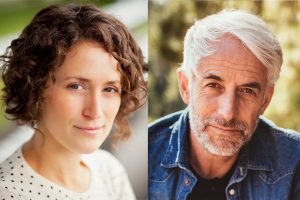Chasing the clouds
Immunotherapy - ovarian cancer and colorectal cancer

Project from 2020 Allocated sum in discussion
The cells of some cancers have the particularity of making a protein, TSP-1, in very large quantities. These position themselves around the cancer cell and form a cloud-like mass that disrupts our immune system and renders it inoperative.
Colorectal cancer and ovarian cancer often use this defensive tactic.
Apmonia Therapeutics has designed a product that will literally latch onto these clouds and chase them away, allowing our immune system to spot the cancer cells and eliminate them. This is a very promising immunotherapy.
__________________________
Incidence and mortality
In 2020, colorectal cancer affected 519,820 people in Europe. Ovarian cancer affected 66,693 women (source: WHO-Globocan), with a prognosis that remains extremely sensitive: almost 1 in 3 women do not survive.
The hope of immunotherapy
In order to fulfil different survival functions (e.g. creating blood vessels, activating growth), the genes of a tumour produce proteins. Depending on their nature, these proteins are sometimes located inside or outside the cell. In ovarian and colorectal cancers, TSP-1 proteins are produced in very large quantities and, like a cluster of clouds, they are positioned around the cell.
Our immune system has various soldiers, including T-cells, whose job it is to destroy abnormally functioning cells, such as cancer cells. These soldiers are equipped with antennae (one of which is called CD47) to detect targets for attack. Lost in the clouds formed by TSP-1 proteins around the tumour, the soldiers cannot go into action.
Chasing the clouds
Apmonia Therapeutics has developed an immunotherapeutic treatment that specifically targets these clouds. The product, called TAX2, clings to them and then allows the soldiers’ antennae to function normally, locating and attacking the cancer cells.
Karine and Henry
 Karine is an alias for the many patients affected by ovarian cancer. Henry is the name of the colorectal cancer patients. For them, Apmonia’s solution could provide an innovative therapeutic response.
Karine is an alias for the many patients affected by ovarian cancer. Henry is the name of the colorectal cancer patients. For them, Apmonia’s solution could provide an innovative therapeutic response.
For all the “Karine” and all the “Henry”, the Foundation has chosen to support a large part of this promising project, by providing in a first phase €375,000 needed to reach a key stage in the development of this future treatment.
This will be followed by a second phase of €750,000.